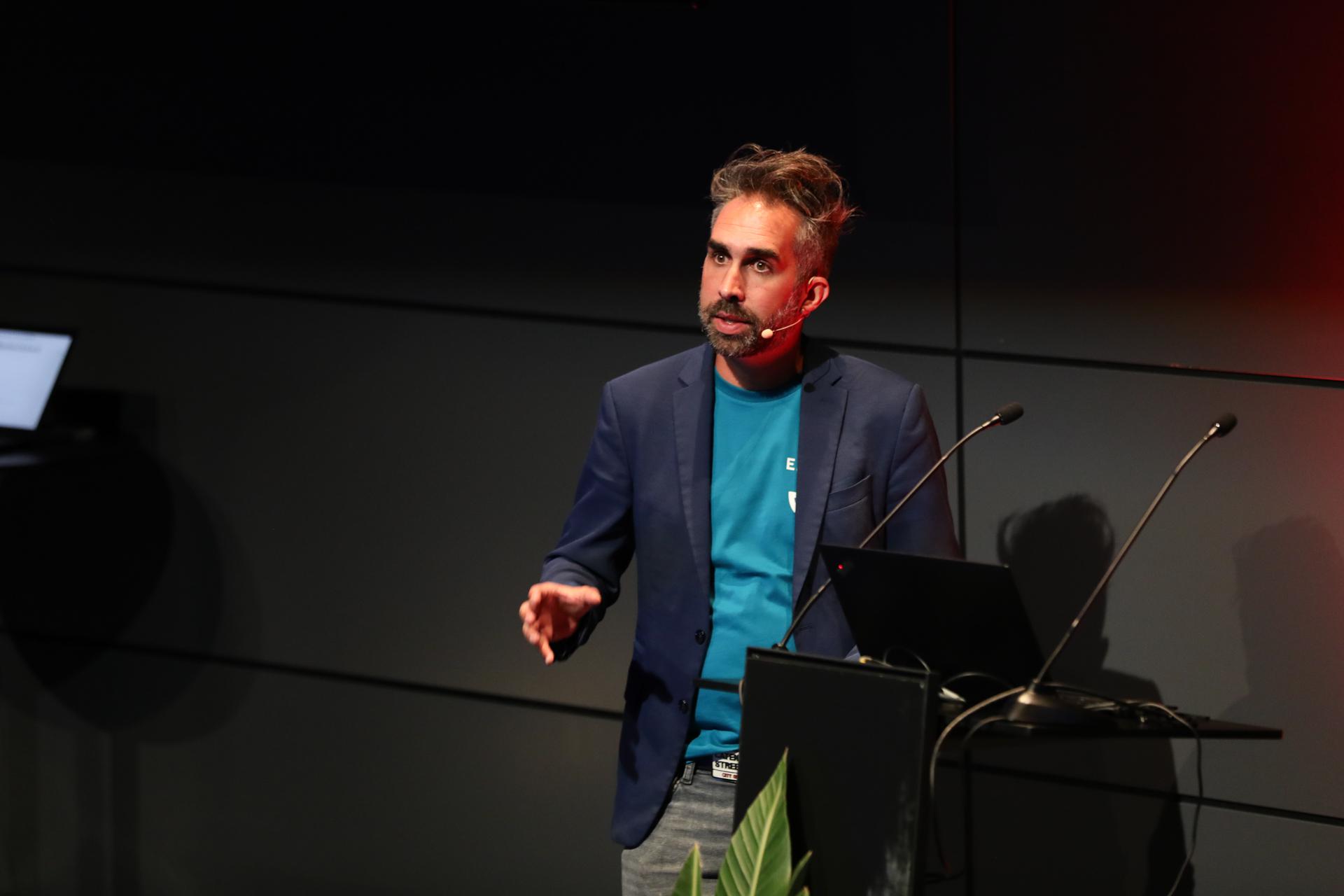“Collective intelligence is the key to successful innovation”

FUSTIC organized an on-site visit of the brand-new recycling platform "La Plaine" in Vufflens-la-Ville on 14th September 2022. © Maxence Grangeot
FUSTIC – or Future Sustainable Territories, Infrastructure and Cities – is an association created jointly by EPFL and ENAC in 2021. It held its first annual general meeting the day of ENAC’s 20th anniversary celebration. We used this opportunity to sit down with FUSTIC cofounder Frédéric Dreyer to discuss the association and its plans for the future.
What are FUSTIC’s main aims?
Our association was created to form an integrated network of change agents and experts from different fields, with the goal of tackling issues related to infrastructure and urban and regional development. We believe all these stakeholders have a role to play, and that their combined efforts form the core of civic decisions. FUSTIC also serves to “translate” ideas between these different groups, since it can seem like academics, policymakers and economists sometimes speak different languages. That is, even when they’re talking about the same thing, it’s usually in a different way – yet they must be able to understand each other’s needs and expectations if we are to move forward. In Switzerland, universities have been tasked with promoting innovation, and that can be done only by forging ties with stakeholders on a local and national level. This will enable us to understand what’s needed and which direction we should go in. I believe collective intelligence is the key to successful innovation.

What will you focus your efforts on?
Our primary aim is to raise awareness and promote impactful actions and solutions to make our regions, cities and infrastructure more sustainable. This includes not just urban development, but also urban health, transportation, energy, the water supply, biodiversity, urban agriculture, the circular economy, and more. Essentially, we advocate a holistic, systemic approach to our regions and cities, which are living, breathing entities. FUSTIC also encourages the use of digital technology to make cities more sustainable in simple, lasting ways.
FUSTIC already has 109 members. What kinds of groups do you attract?
We bring together change agents along the entire value chain. Our 109 members range from scientists and engineers to public- and private-sector organizations, universities, NGOs, non-profits, regulatory bodies and citizens.Roughly half of our members come from the private sector, around 30% are schools and universities, and around 20% are public-sector organizations, NGOs and citizens.
Can you give us an example of a FUSTIC research project that’s representative of what you’d like to achieve?
A good example is our work with EPFL’s Media x Design Laboratory, headed by Prof. Jeffrey Huang, to create a consortium for The Blue City Project. This is a 4-year project funded by the Innosuisse Swiss-government program and aims to develop digital models of the various networks running through a city (e.g., for transportation, utilities, waste management, logistics, construction and natural systems), in order to help officials reduce cities’ carbon footprint.
What other initiatives is FUSTIC involved in?
We regularly contribute to awareness campaigns by participating in conferences, working groups and steering committees. For example, we’re involved in the CERN’s Green Village program, the French-Swiss Chamber of Commerce’s sustainability committee, Swissnex, and a number of EPFL research centers (CLIMACT, EcoCloud and the Habitat Research Center, HRC). We’re also associated with international initiatives like 2,000-Watt Smart Cities and the Solar Impulse Foundation’s “1,000+ Solutions for Cities” program.